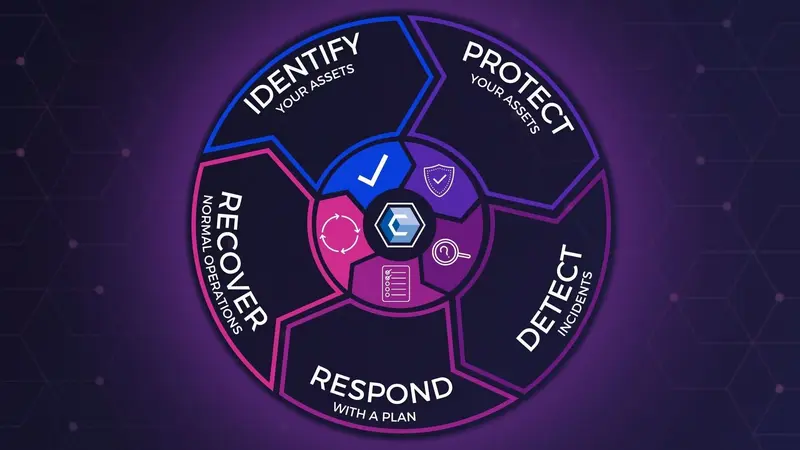The Digital Age has brought about unparalleled connectivity and convenience, but it has also opened doors to unprecedented cybersecurity threats.
As businesses and individuals navigate through this complex landscape, the importance of robust cyber defense strategies cannot be overstated.
Among the myriad approaches to fortifying digital defenses, engaging in network security conferences stands out as a vital component.
These gatherings of cybersecurity professionals, experts, and enthusiasts offer a unique platform for learning, collaboration, and innovation.
In this article, we delve into the significance of participating in such conferences and how they contribute to enhancing cyber defense strategies.
Understanding Network Security Conferences
Network security conferences are organized gatherings that bring together professionals, researchers, policymakers, and stakeholders from various sectors to discuss, share insights, and collaborate on matters related to cybersecurity.
- Cutting-edge Discussions: Attendees engage in discussions on the latest advancements and challenges in network security.
- Policy Insights: Policymakers share perspectives on regulations and strategies to address cybersecurity threats.
- Collaborative Workshops: Workshops facilitate hands-on learning and collaboration on security protocols and tools.
- Networking Opportunities: Attendees connect with peers, potential collaborators, and industry leaders to foster professional relationships.
- Trend Awareness: Participants gain insights into emerging trends and technologies shaping the cybersecurity landscape.
- Best Practices Sharing: Experts exchange best practices and successful strategies for safeguarding networks against cyber threats.
1. Staying Abreast of Evolving Threat Landscape
One of the primary reasons why engaging in network security conferences is crucial for cyber defense strategies is the ever-evolving nature of the threat landscape.
Cyber threats are constantly evolving, with attackers employing increasingly sophisticated tactics and techniques to breach defenses and compromise sensitive information.
By attending conferences, cybersecurity professionals can stay updated on the latest threats, vulnerabilities, and attack vectors.
This awareness enables them to adapt their defense strategies accordingly and proactively mitigate emerging risks.
2. Learning from Industry Experts and Thought Leaders
Network security conferences by Boardwalk Bytes serve as invaluable platforms for learning from industry experts and thought leaders in the field of cybersecurity.
3. Networking and Collaboration Opportunities
Another significant benefit of participating in network security conferences is the networking and collaboration opportunities they offer.
These events bring together a diverse range of cybersecurity professionals, including practitioners, researchers, academics, and policymakers, creating an ideal environment for networking and knowledge sharing.
Through interactions with peers and industry stakeholders, attendees can exchange ideas, discuss challenges, and forge valuable connections.
Collaborative efforts initiated at these conferences can lead to partnerships, research collaborations, and information sharing networks that strengthen cyber defense capabilities.
4. Showcasing Innovations and Best Practices
Network security conferences provide a platform for showcasing innovations, best practices, and success stories in cybersecurity.
Many conferences feature presentations, demos, and exhibitions where organizations and individuals can highlight their latest technologies, tools, and solutions for combating cyber threats.
By attending these sessions, participants can gain insights into cutting-edge technologies, evaluate different solutions, and identify approaches that align with their defense objectives. Digital security is vital, particularly for businesses, says entrepreneur Hari Ravichandran in this interview about cybersecurity.
Moreover, sharing best practices and success stories inspires others in the community to adopt similar strategies and raise the overall standard of cyber defense.
5. Professional Development and Skill Enhancement
Participating in network security conferences is instrumental in professional development and skill enhancement for cybersecurity professionals.
These events offer a wide range of educational opportunities, including workshops, training sessions, and certification programs, aimed at enhancing participants’ knowledge and expertise.
Whether it’s learning about the latest security protocols, mastering new tools and techniques, or honing soft skills like communication and leadership, attendees can tailor their conference experience to meet their specific learning objectives.
Investing in continuous learning and skill development is essential for staying competitive in the rapidly evolving field of cybersecurity.
6. Gaining Insights into Regulatory Landscape
In addition to technical aspects, network security conferences also provide insights into the regulatory landscape and compliance requirements governing cybersecurity.
With the proliferation of data protection regulations such as GDPR, CCPA, and HIPAA, organizations face increasing pressure to ensure compliance with stringent security standards.
Conferences often feature sessions dedicated to regulatory updates, compliance frameworks, and best practices for achieving regulatory compliance.
By attending these sessions, cybersecurity professionals can gain a better understanding of their legal obligations, assess the impact of regulations on their operations, and implement measures to maintain compliance.
7. Fostering Cross-Sector Collaboration and Information Sharing
Cybersecurity is not just a concern for individual organizations but a collective responsibility that requires collaboration across sectors.
Network security conferences play a crucial role in fostering cross-sector collaboration and information sharing to address common cybersecurity challenges.
These events bring together stakeholders from government, academia, industry, and civil society, facilitating dialogue, collaboration, and coordination on cybersecurity issues of mutual interest.
By breaking down silos and fostering partnerships, conferences enable stakeholders to collectively strengthen cyber defense capabilities and build resilient ecosystems.
8. Inspiring Innovation and Research
Beyond sharing existing knowledge and best practices, network security conferences inspire innovation and drive research in cybersecurity.
These events serve as catalysts for new ideas, research projects, and technological advancements that push the boundaries of cyber defense.
Whether it’s exploring emerging technologies like artificial intelligence and blockchain or addressing novel threats such as ransomware and supply chain attacks, conferences provide a fertile ground for innovation.
By encouraging interdisciplinary collaboration and fostering a culture of experimentation, conferences fuel the development of new solutions and strategies to counter evolving cyber threats.
Conclusion
Engaging in network security conferences is of paramount importance for enhancing cyber defense strategies in today’s digital landscape.
By actively participating in these events, cybersecurity professionals can equip themselves with the knowledge, skills, and connections needed to effectively defend against cyber threats and safeguard critical assets and information.
